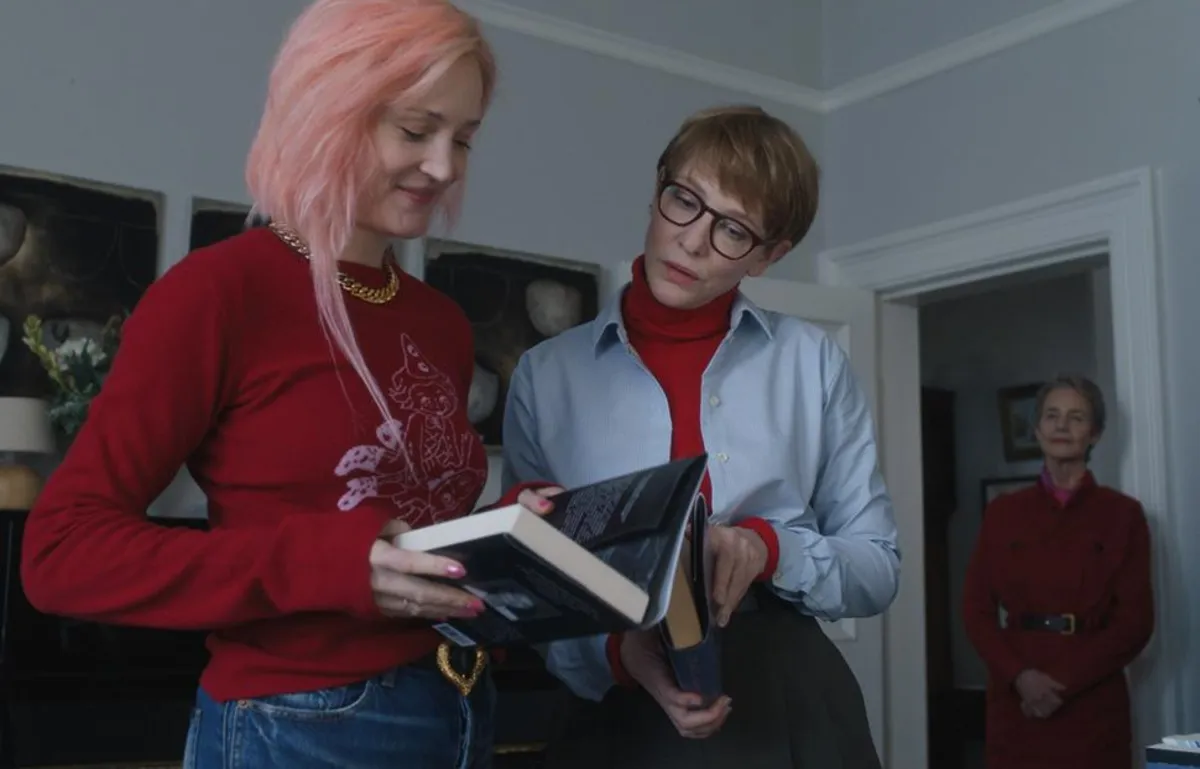
Father Mother Sister Brother, the latest feature from acclaimed indie filmmaker Jim Jarmusch, premiered this evening at the prestigious Venice Film Festival. This compelling film boasts a remarkable ensemble cast, including Cate Blanchett, Vicky Krieps, Tom Waits, Adam Driver, Mayim Bialik, Charlotte Rampling, Sarah Greene, Indya Moore, Luka Sabbat, and Françoise Lebrun. The narrative revolves around estranged siblings who reunite after years apart, leading them to confront unresolved tensions and reevaluate their strained relationships with their emotionally distant parents.
Critics have described Father Mother Sister Brother as low-key fare, even by Jarmusch’s standards. However, initial reviews have largely skewed positive, indicating that many viewers connected with the film's themes. Deadline’s Damon Wise referred to the movie as “an elevated cringe comedy,” reminiscent of Jarmusch’s earlier works from the 1980s and ’90s. He contrasts it with the 2005 film Broken Flowers, suggesting that this latest offering is a deliberate return to Jarmusch's deadpan, experimental roots. Wise noted, “Nothing seems to land, but somehow it lingers; enjoy it or not, Father Mother Sister Brother will worm its way into your brain like false memory syndrome.”
The Guardian’s Peter Bradshaw awarded the film four out of five stars, emphasizing its calm and content atmosphere. He pointed out that viewers might anticipate a dramatic crisis or confrontation, but instead, they are met with a sense of acceptance and simplicity that offers a refreshing cleanse for the moviegoing palate. “It is a film to savour,” he concludes.
IndieWire’s Ryan Lattanzio rated the film an A-, praising its ability to resonate with viewers who can connect with its “cool vibrations.” He describes the film as “dry as a physical copy of short stories you’ve loved since you were a child,” highlighting the absence of clear protagonists or antagonists. Instead, the film captures everyday moments that resonate deeply, akin to how David Lynch captures fleeting ideas. Lattanzio notes, “This is a movie Lynch would’ve admired, brittly funny and content to linger in doorways and thresholds.”
Next Best Picture’s Cody Dericks rated the film 7/10, describing it as a “cinematic series of variations on a theme.” He commended Jarmusch for crafting a gentle yet humorous look at familial interactions, which often tread the line between tumultuous and overly sentimental. The film’s understated narrative allows it to resonate with audiences whose family dynamics fall somewhere in between, making it all the more relatable.
Vulture’s Bilge Ebiri remarked that the film finds Jarmusch in a “minor key,” which could be one of his best keys. The film presents a triptych of unremarkable interactions, possibly reflecting a transitional phase for the director. Conversely, The Playlist’s Marshall Shaffer commented that while the film may not stand out in Jarmusch’s filmography, it possesses the capability to evoke profound sadness through its simplicity.
However, The Wrap’s Ben Croll offered a less favorable view, suggesting that even though the film’s finale holds thematic significance, it lacks engagement on other critical levels, resulting in a somewhat deflating experience. He adds, “Like any family, Father Mother Sister Brother has its ups and downs. And, like any family, you’re allowed to pick favorites.”
The International Cinephile Society rated Father Mother Sister Brother four out of five stars, calling it “one of the year’s most lovely, gentle films.” Strong notices have also emerged from industry publications such as THR and Variety, indicating that while the film may not appeal to everyone, it offers a unique and contemplative exploration of family relationships that resonates on a deep emotional level.